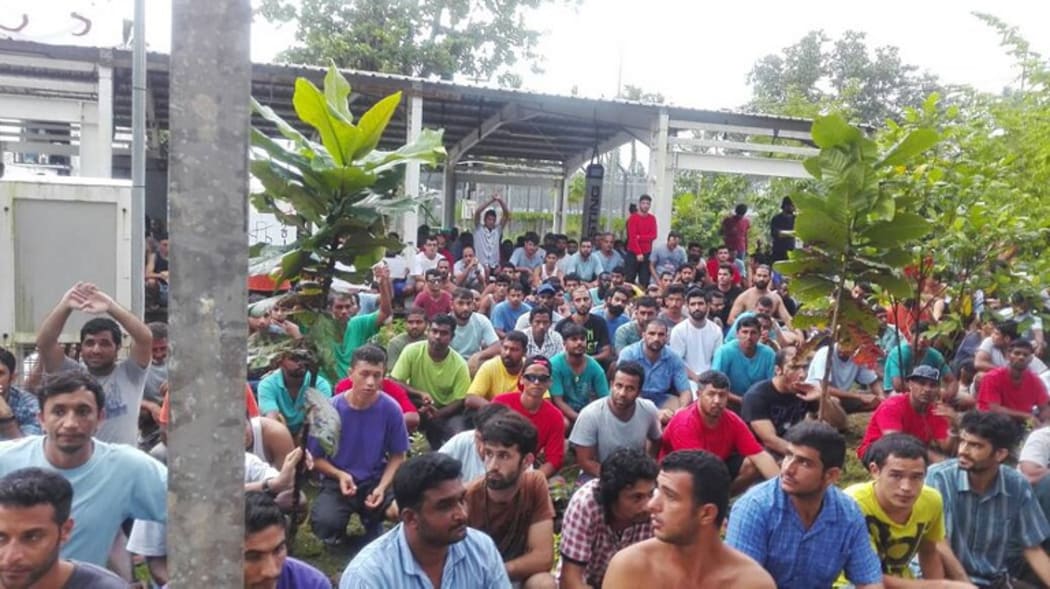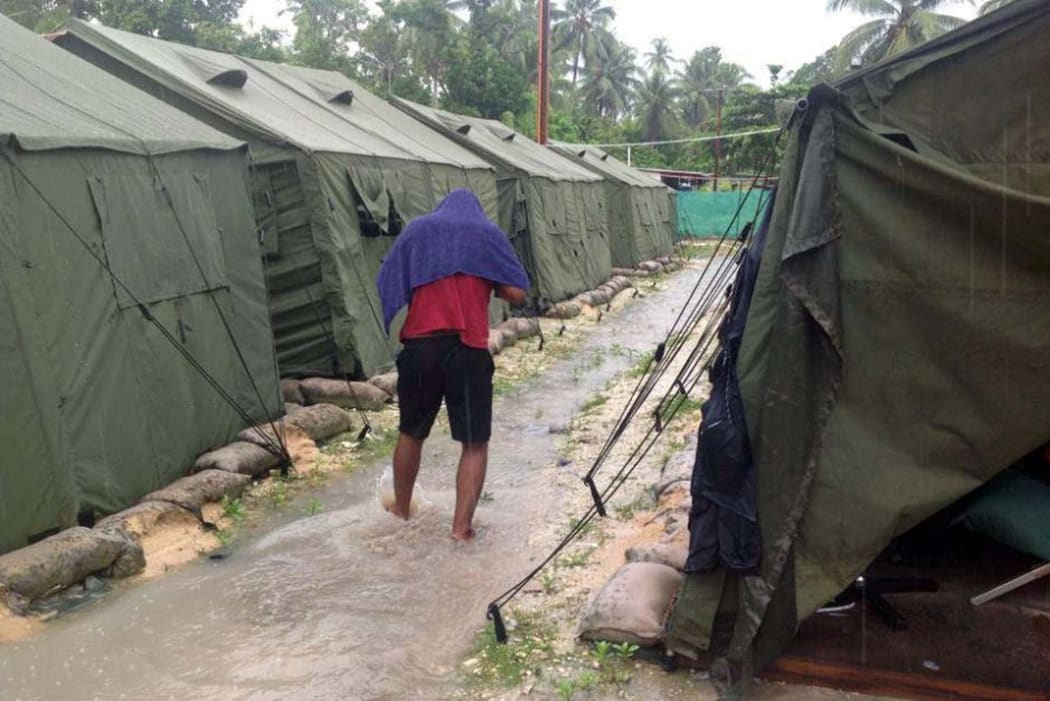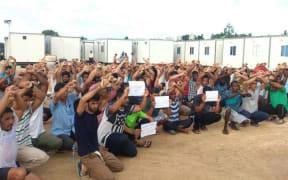A new report has accused Australia of abandoning hundreds of refugees and asylum seekers in Papua New Guinea and leaving them in a situation that resembles punishment rather than protection.

A handout photo from Refugee Action Coalition taken and received on 13 November 13 shows refugees at the Australian detention centre on Manus Island. Photo: AFP / REFUGEE ACTION COALITION
Amnesty International documents how refugees and asylum seekers were evicted from the Manus Island detention centre in November and moved to newer but inadequate facilities where it says violence from the local community remains a constant threat.
The author of the report Kate Schuetze said the new centres are not only a safety risk, but they are also without basic services.
The research was based on interviews with 55 refugees and asylum seekers.
Many refugees told Amnesty International they were afraid to leave the centres, as several refugees had been attacked in recent years and police had refused to act.
Amnesty said the refugees are caught in a hostile situation, where there have been repeated roadblocks by a landowner, disputes between service providers and local residents protesting.
Police have also advised them to return to their accommodation by six each night for security reasons.

Australian detention centre on Manus Island. Photo: REFUGEE ACTION COALITION / AFP
Amnesty International said the trauma of the situation has taken a toll, with 88 percent of refugees suffering from depression or post-traumatic stress disorder.
Despite this, the new centres are only served by one small medical clinic and a public hospital, which Amnesty says is far from adequate to meet the mens' needs.
The report said PNG authorities have also failed to provide regular information about claims for refugee status, access to identity and travel documents, or the ability to obtain work long-term.
It says settlement in PNG has proven near difficult for refugees who have attempted it, given the difficulties of earning a living and the constant threat of violence.
Amnesty International said after nearly five years, the Australian Government has provided no viable or sustainable options for the refugees it forcibly transferred to PNG.
Although the agency does acknowledge around 83 have been accepted for resettlement in the United States, but this is a lengthy and arbitrary process that is not open to everyone.


